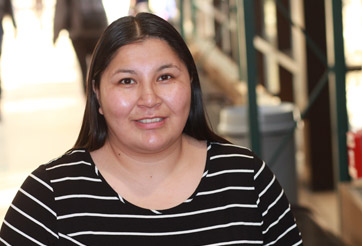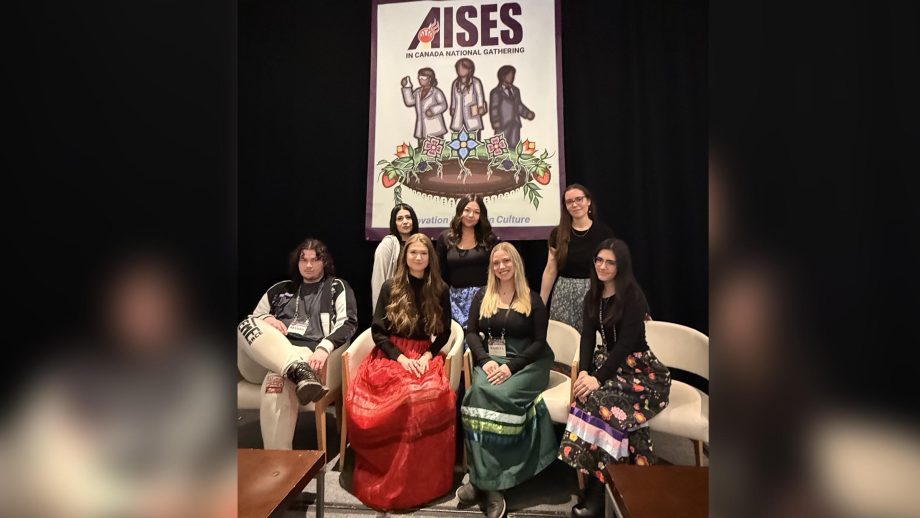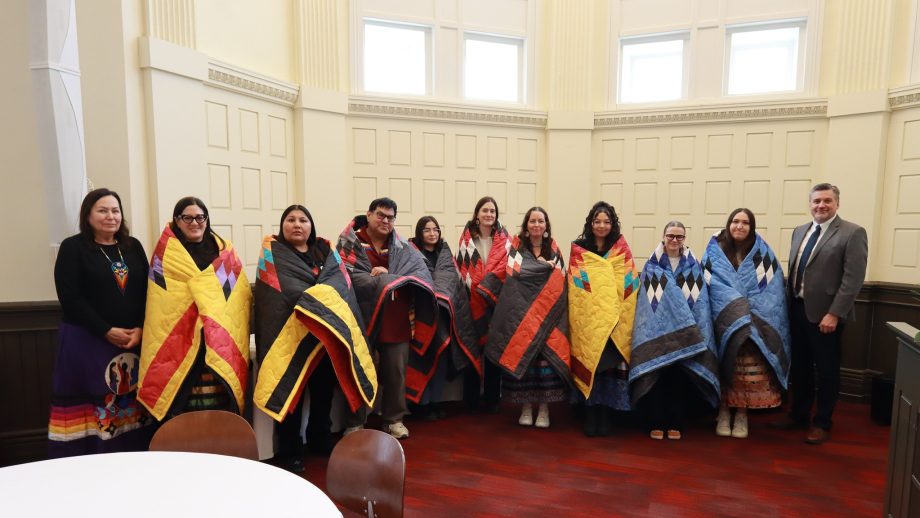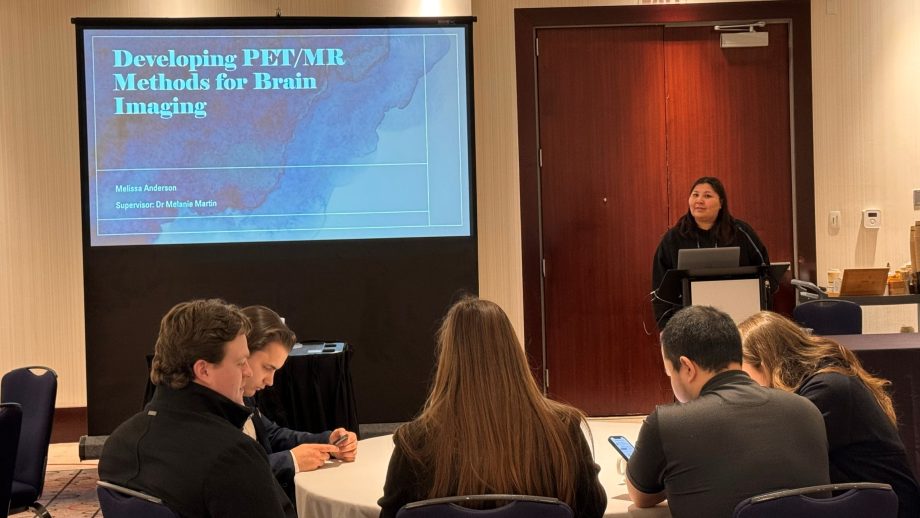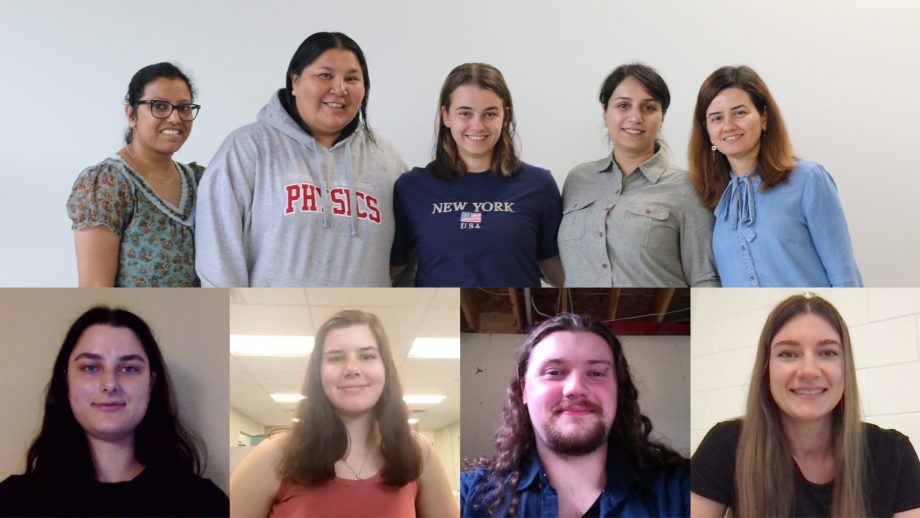Melissa Anderson will be presenting her undergraduate research to an international community at the International Society for Magnetic Resonance in Medicine (ISMRM) scientific meeting, taking place online August 8 – 15.
Originally set to take place in Sydney, Australia, the virtual conference has moved online. Anderson, an honours physics student, will be the only Manitoban scientist presenting at this year’s event.
I’m looking forward to learning from, and making connections with, the international MRI research community as I plan to work in this field for a long time.
Melissa Anderson
Thesis supervisor Dr. Melanie Martin encouraged Anderson to submit her research.
“Melissa is a talented researcher who shows a lot of promise,” said Martin. “Being accepted at ISMRM is quite an accomplishment, especially as an undergraduate student, because the peer-review process for this conference is difficult.”
Anderson was thrilled and surprised when she heard the news that her digital poster, Comparison of Cylindrical and Spherical Geometric Models to Infer Cell Sizes in a Garlic Stem, had been accepted.
“I am so excited,” said Anderson. “I’m looking forward to learning from, and making connections with, the international MRI research community as I plan to work in this field for a long time.”
The poster showcases her research into cell size analysis, providing insight into how nerve cells in the brain (axons) are affected by aging and disorders such as Multiple Sclerosis or Alzheimer’s.
“Since vegetables, such as garlic stems, have cells with different shapes, we decided to see if we could detect a difference in sizes of the cells if we model them as spheres or cylinders,” explained Martin.
In addition to being a star student who has won several research awards from Natural Sciences and Engineering Research Council of Canada, Anderson is the mother of four. As her eldest prepares for high school, she hopes that the success she’s experienced at UWinnipeg provides inspiration for the future.
“I want to show my children that they are capable of doing this as well,” she said. “It’s very busy, but I’m trying to make a better life for them, so it’s been worth the struggle.”
Anderson says the success she’s had academically over the past few years is thanks to the incredible support she’s received at home.
“I couldn’t do it without my family’s support,” said Anderson. “I have my sister to look up to because she completed her nursing degree while raising four children. She’s given me a lot of help and encouragement.”
Anderson grew up in Fox Lake Cree Nation. She is a firm believer in the importance of providing mentorship and inspiration to the next generation of Indigenous students studying science. In fall 2019, she helped form the first UWinnipeg chapter of The Canadian Indigenous Science and Engineering Society (.caISES) and for the past two summers has taught a class in UWinnipeg’s Pathways to Graduate Studies program.
Through this connection, Anderson inspired fellow student Sidney Leggett to apply for a prestigious cross-disciplinary internship at the Arthur B. McDonald Canadian Astrophysics Research Institute. Leggett says she never would have applied to the program without the encouragement she received from Anderson.
Anderson says that helping other students succeed is important to her, because the life changing opportunities she’s been given at UWinnipeg have had a huge impact on her future and she wants to pay that forward.
“I am so thankful for The University of Winnipeg for making the opportunity to attend ISMRM possible for me,” she said. “I have had so many amazing experiences during my studies and this is definitely a highlight.”
Anderson has been accepted into a Master’s in biomedical engineering at the University of Manitoba, to start fall 2020. She looks forward to continuing her MRI research under Martin’s supervision.
While Martin’s lab has gone virtual – with researchers working from home – Anderson, who is a 2020 Indigenous Summer Scholar, will be making quantitative measurements of the uniformity of images acquired from a sample holder she created prior to the shutdown. She will also be reviewing yet-to-be published data sets aimed at changing the way neurodegenerative diseases are diagnosed.
“My dream is to be a researcher in the medical physics field, so that I may contribute toward finding cures for illnesses; such as, kidney disease, heart disease, and diabetes and its complications. These are a sample of the diseases which Indigenous people are more susceptible to with statistically higher rates than the general population.”

